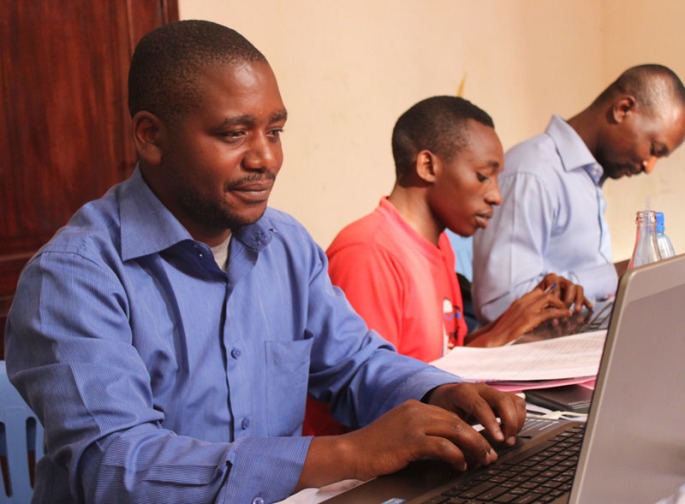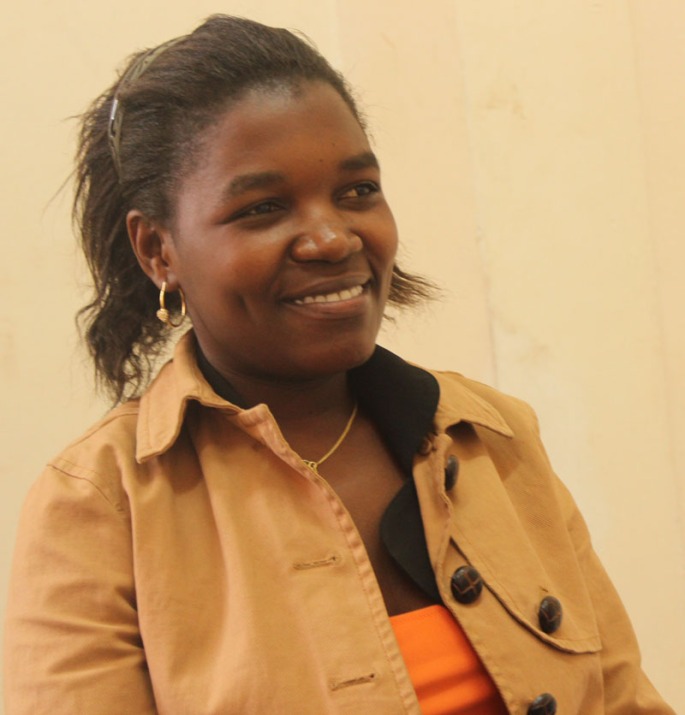Congo is also like a little child, everybody thinks that they can bring us a solution without even properly reflecting on it, everybody on the outside.
Last week I was in Congo to train a group of journalists and activists in social media and activism. During this trip I interviewed 2 Goma-based journalists and a youth activist on the challenges of working in an area with conflicts that have no permanent front lines Conflicts, in which often civilians pay the highest price as different armed groups fight over ever-changing political interests. Late last year, Oxfam released a report that showed there were more than 25 armed groups in North and South Kivu provinces.
The latest conflict to hit Goma, the capital of natural resource rich North Kivu province in Eastern Congo, was last year when M23 rebels temporarily occupied the capital over disputes with government regarding their integration into the national army.
Often in these times, we mostly feed on reports from international media, written by journalists who fly in and out and can be fairly protected. In the case of Uganda we had most reporters covering the conflict from M23 frontline at the rebels invitation.
For Congolese journalists who are part of these communities who have suffered the wars for over a decade, the conditions are different. They often don’t have the protection of a large media house and they can make enemies with any groups no matter how ‘objective’ their reporting can be. Also in a country where the government troops commit crimes just like the militias do, the work of a local journalist or activist is tougher in Congo.
For instance, last year DRC government banned broadcasts on the conflict in eastern part of the country.

Jacques Vagheni is Goma-based journalist working at a community radio. He has been working as a journalist for 6 years on human rights and governance.
Press freedom
The constitution of my country grants freedom of press but nevertheless there are some political decision makers who are not happy if you denounce violations of human rights. There’s also the added issue of security because there are armed conflicts that come up and this sometimes hinders our right to report the way we want to.
In the last one-year, things have changed. When M23 took over Goma some journalists were threatened on phone if they negatively reported on the rebels. The rebels controlled the security in the city and that meant journalists couldn’t be sure of what would happen if they reported in a certain way.
The situation for me was just like for most people, the economy went down, there was no fuel for the generator to run the radio, but now things are more less back to the way things used to be.
What can be done?
Training in safety is important. If we can also learn how to use social media to lessen the risks, that would advance our freedom of expression in a way. Security remains a complex issue and leaders in the great lakes region should decide on this issue. It is not just about security of journalists in Goma but what happens here also affects other regions.

Passy Mubalama is journalist and blogger. My family is from South Kivu but I was born in Goma and I have been working as a journalist for four years.
Challenges:
There’s a lot frustrations for journalists here especially with the war situation, the presence of many armed groups and rebels makes it hard. We deal with sensitive information and the government is often against it. For example if we do an interview with the rebels, it is very difficult to get that out through national media channels. They don’t accept it.
It is very difficult as a female journalist to meet rebels and talk to them. You are afraid because of what you hear it true, there’s a risk of rape especially since the rebels use it as a weapon of war and political tool.
Access to sources of official information is a big problem. Most authorities are afraid of journalists in such fragile situation which I understand but we should be moving to a democracy where journalists should be able to access freely official information.
It is very difficult for Congolese journalists to publish stories beyond the region and it is part of the reason I created my own blog. Check out Mubalama’s blog (in Fr)

Micheline Mwendike is a youth activist. She was one of the organisers of a demonstration by youth in December last year against the peace talks between government of DRC and rebels of M23.
Challenges to freedom of expression:
Usually it is the government or rebels that are speaking about the ‘main issues’ yet it is rebels that also bring insecurity. Why shouldn’t we as communities identify our own grievances and appeal to authorities. An example is the recent negotiations that are going on which we consider another Congolese theatre. They go to Kampala, spend nice time and talk for months while refugees and displaced people continue to live in camps. It is not clear who is responsible for what. We did our analysis and started a campaign where we wrote several letters to provincial MPs (deputies) to draw attention to this. We said they have to bring peace here, instead of spending a lot of money for nothing.
From population there’s no trust, people start asking why you are even bothered and they accuse you of being paid by political opposition. People here immediately think about what is in front of them and the government knows this well so it takes advantage of this. They know if people hear shooting one time, they will run away from a demonstration and they won’t come back. Also a lot of youth when they participate in one campaign, they don’t see how this will change the situation, they get discouraged.
Peace efforts:
People here don’t like to make big decisions. For example when you say you are against these negotiations they say oh, you are unrealistic. We are at that point where people just let things happen. Congo is also like a little child, everybody thinks that they can bring us a solution without even properly reflecting on it, everybody on the outside. They say, I think a neutral force would be great! And we are not even sure that’s what we want but we are afraid, we don’t like to take decisions and so we accept.
I think the solution shouldn’t be exterior. Rwanda or Uganda or UN cannot bring it. If we would have some positive forces within ike a better police, a better military, integrating the youth and may be in five years we could have something lasting instead having another conference in Kampala, Addis Ababa and so on.
Another activist who wished to remain anonymous told me, when I asked about freedom of expression:
When I read international analysts saying that the problem of Congo is a weak state and weak government, I am surprised. I live here and everyday I meet the Congolese state, ready to extort from me, ready to jail you if you have a divergent view, ready to take you on! So it is a lie to say the problem of Congo is a weak state! It is a matter of priorities!
Notes: Last weekend, UN Secretary General Ban Ki-moon announced that the earlier failed peace deal for Congo would be signed on February 24 in Addis Ababa. Hope he wont get another disappointment. “African leaders failed to sign the deal last month due to the concerns of some countries over who would command a new regional force that would deploy in eastern Congo and take on armed groups operating in the conflict-torn region. Peace enforcement missions allow the use of lethal force in serious combat situations and a new Security Council resolution would be needed to approve the intervention unit and is likely to be supported by the 15-member council.”
Meanwhile the M23 and DRC government talks are still going on in Kampala.

2 thoughts on “Freedom of expression and peace deals; a chat with Congolese journalists and activists”